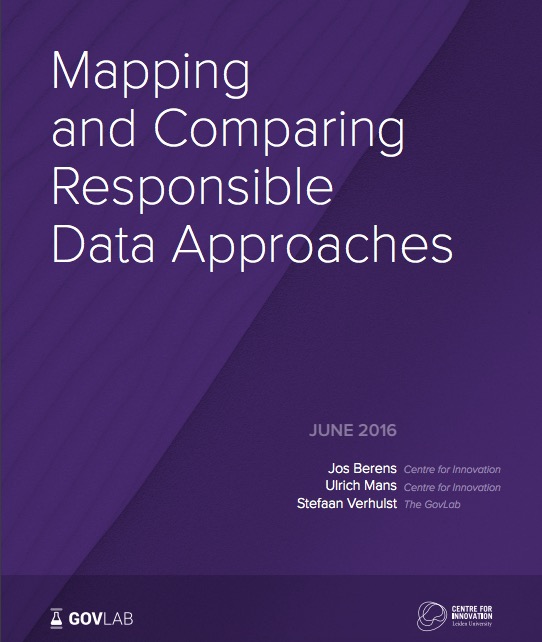There’s a problem with data. Unlike empirical observations or anecdotal reporting, people tend to believe that the results of a question answered with data are incontrovertible.
It’s the phenomenon of “mathwashing” so coined by former Kickstarter data chief Fred Benenson in these very webpages of Technical.ly Brooklyn.
“Anything we build using data is going to reflect the biases and decisions we make when collecting that data,” Benenson explained.
Now NYU Tandon’s Governance Lab (GovLab) has come out with a new report, Mapping and Comparing Responsible Data Approaches, that has some solutions.
“As much as data offers new opportunities, it also poses new risks—risks that are magnified given the vulnerability of affected stakeholders,” the report explains. “It is therefore essential to ensure that any use of data in humanitarian contexts is governed through a balanced and well-articulated set of data policies and guidelines. In order to realize the potential of data while minimizing its harms, we need a framework for data responsibility.”
Here’s what they found:
1. Fragmentation and the need for leadership
- “In the course of this study, we identified fragmentation at multiple levels.”
2. Coordination and leadership
- “Despite a global consensus on the need for data governance, actors and stakeholders are still debating the precise contours of such governance.”
3. The need to consider trade-offs
- “Designing and drafting policy is often a process of tradeoffs.”
4. The need to determine responsibilities and roles
- “Any effective responsible data use policy must include a clear sense of individuals or groups that are accountable or tasked to oversee the policy’s implementation and enforcement.”
5. The need for innovation
- “Solving 21st century challenges using 20th century tools and procedures will never be effective.”
6. The need to use clear language
- “Good policies are easy to read.”
7. The need to gather evidence on what works
- “In order to be truly effective (and responsible), data policies should themselves be data-driven.”
8. In conclusion, the lack of a responsible data framework for the humanitarian space presents a substantial risk
- “Without an adequate data governance framework and established policies that are supported and implemented throughout its organization, actors in the humanitarian space put not only their own organization at risk, but more importantly, their beneficiaries as well.”
Join the conversation!
Find news, events, jobs and people who share your interests on Technical.ly's open community Slack
